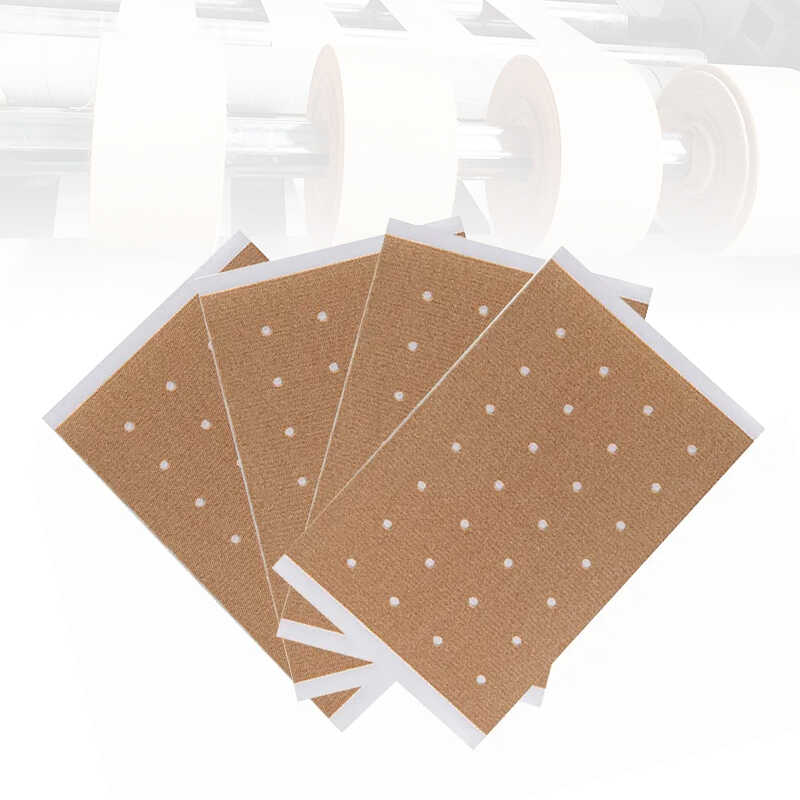How Do Private-Label Patches Enhance a Healthcare Provider’s Brand?
In the healthcare industry, differentiation and trust are pivotal for a brand’s success. Private Label Healthcare Pain Relief Patches offer healthcare providers a unique opportunity to strengthen their brand, establish customer loyalty, and stand out in a competitive market. By partnering with a reliable Healthcare Pain Relief Patches Manufacturer or Healthcare Pain Relief Patches OEM, providers can deliver customized solutions that align with their brand identity and meet patient needs effectively. This article explores the ways private-label patches enhance a healthcare provider’s brand and the long-term benefits for businesses.

1. Building Brand Identity Through Private Labeling
Private labeling allows healthcare providers to sell products under their own brand name, distinguishing them from competitors. Private Label Healthcare Pain Relief Patches can feature a provider’s logo, packaging design, and unique formulations, which:
- Strengthen Brand Recognition: Customized packaging and branding ensure patients associate quality care with the provider’s name.
- Reinforce Trust: Offering branded products establishes the provider as a reliable source for effective pain relief solutions.
- Communicate Expertise: A branded product line demonstrates the provider’s commitment to innovation and patient care.
Partnering with a Healthcare Pain Relief Patches Supplier ensures consistent quality, which further solidifies the provider’s reputation.
2. Customization Tailored to Brand Values
1. Aligning with Patient Needs
Healthcare providers often cater to specific patient demographics. Custom Healthcare Pain Relief Patches can be tailored to meet these needs, including:
- Herbal Formulations: For patients seeking natural remedies.
- Sustained-Release Options: Ideal for chronic pain sufferers.
- Sensitive-Skin Adhesives: Ensuring comfort for all patients.
2. Showcasing Innovation
Through partnerships with a Healthcare Pain Relief Patches OEM, providers can introduce innovative products, such as:
- Cooling Patches for Athletes
- Post-Surgical Pain Relief Patches
- Joint-Specific Patches for Elderly Patients
These customized offerings not only meet patient needs but also position the provider as a forward-thinking leader in healthcare.
3. Increasing Patient Loyalty
When patients trust a healthcare provider’s branded products, they are more likely to return for other services. Private-label patches contribute to patient loyalty by:
- Ensuring Consistent Quality: Reliable products build confidence.
- Enhancing Patient Experience: Convenient and effective solutions improve satisfaction.
- Fostering Long-Term Relationships: Patients are more inclined to stick with a provider whose products deliver results.
A Healthcare Pain Relief Patches Manufacturer plays a critical role in maintaining high product standards, ensuring the brand remains synonymous with quality.
4. Competitive Advantages in the Market
1. Differentiation from Competitors
By offering private-label products, healthcare providers can set themselves apart from competitors relying on generic solutions. Customized patches highlight the provider’s unique value proposition and attract a broader patient base.
2. Increased Revenue Opportunities
Private-label products create an additional revenue stream. Providers can sell Private Label Healthcare Pain Relief Patches at competitive prices while maintaining healthy profit margins.
3. Enhanced Market Reach
Customized patches allow providers to cater to niche markets, such as:
- Sports Medicine: Patches for athletic recovery.
- Pediatrics: Gentle formulations for children.
- Geriatrics: Long-lasting pain relief for older patients.
5. Streamlined Operations with OEM Partnerships
A Healthcare Pain Relief Patches OEM simplifies the process of creating and distributing private-label products. Key OEM services include:
- Research and Development: Developing unique formulations to match the provider’s requirements.
- Scalable Production: Ensuring timely delivery of both small and large orders.
- Regulatory Compliance: Meeting industry standards for safety and efficacy.
By outsourcing production to a trusted OEM, providers can focus on patient care and marketing their brand.
6. Elevating Brand Perception
Offering private-label products enhances a healthcare provider’s image in several ways:
- Professionalism: A branded product line conveys competence and credibility.
- Commitment to Quality: Patients perceive private-label solutions as a reflection of the provider’s dedication to high standards.
- Adaptability: Customization demonstrates the provider’s willingness to evolve and address patient needs.
Related Questions and Answers
Q1: How do Private Label Healthcare Pain Relief Patches benefit healthcare providers?
A1: They strengthen brand identity, build patient loyalty, and create additional revenue opportunities.
Q2: What customization options are available for private-label patches?
A2: Providers can customize formulations, packaging, adhesive types, and patch sizes to meet specific patient needs.
Q3: How can a Healthcare Pain Relief Patches OEM support branding efforts?
A3: OEMs offer end-to-end services, including product design, manufacturing, and quality control, ensuring the provider’s brand is well-represented.
Q4: Are private-label patches cost-effective for healthcare providers?
A4: Yes, private-label patches provide a high return on investment by offering competitive pricing, reduced production costs, and increased patient loyalty.
Q5: What should I look for in a Healthcare Pain Relief Patches Supplier?
A5: Choose a supplier with a proven track record of quality, innovation, and the ability to meet customization and scalability requirements.
By offering Private Label Healthcare Pain Relief Patches, healthcare providers can enhance their brand reputation, meet patient needs effectively, and achieve long-term business success. Partnering with a reputable Healthcare Pain Relief Patches Manufacturer or OEM ensures the consistent quality and innovation required to thrive in the healthcare industry.






